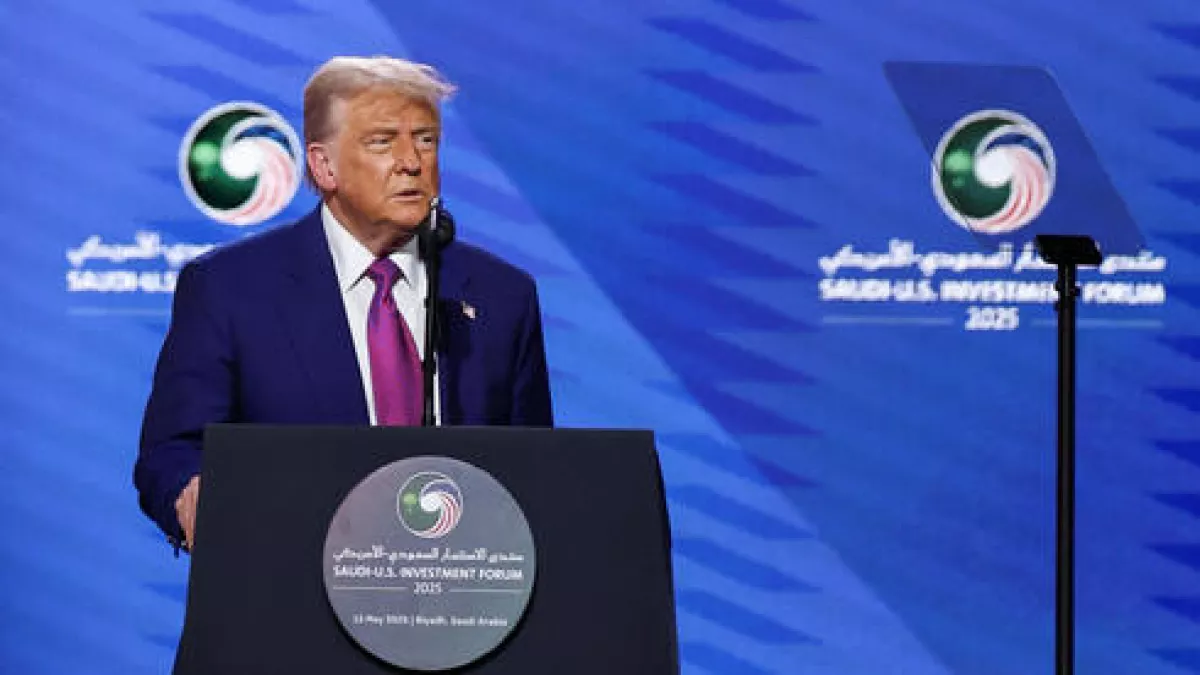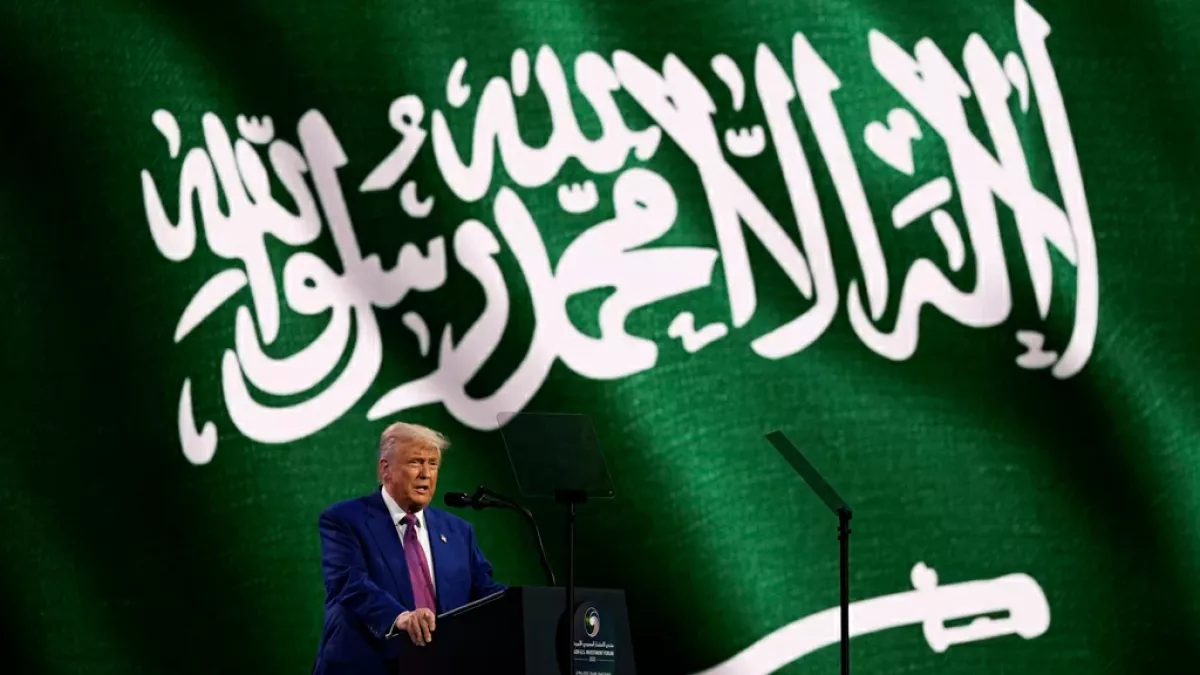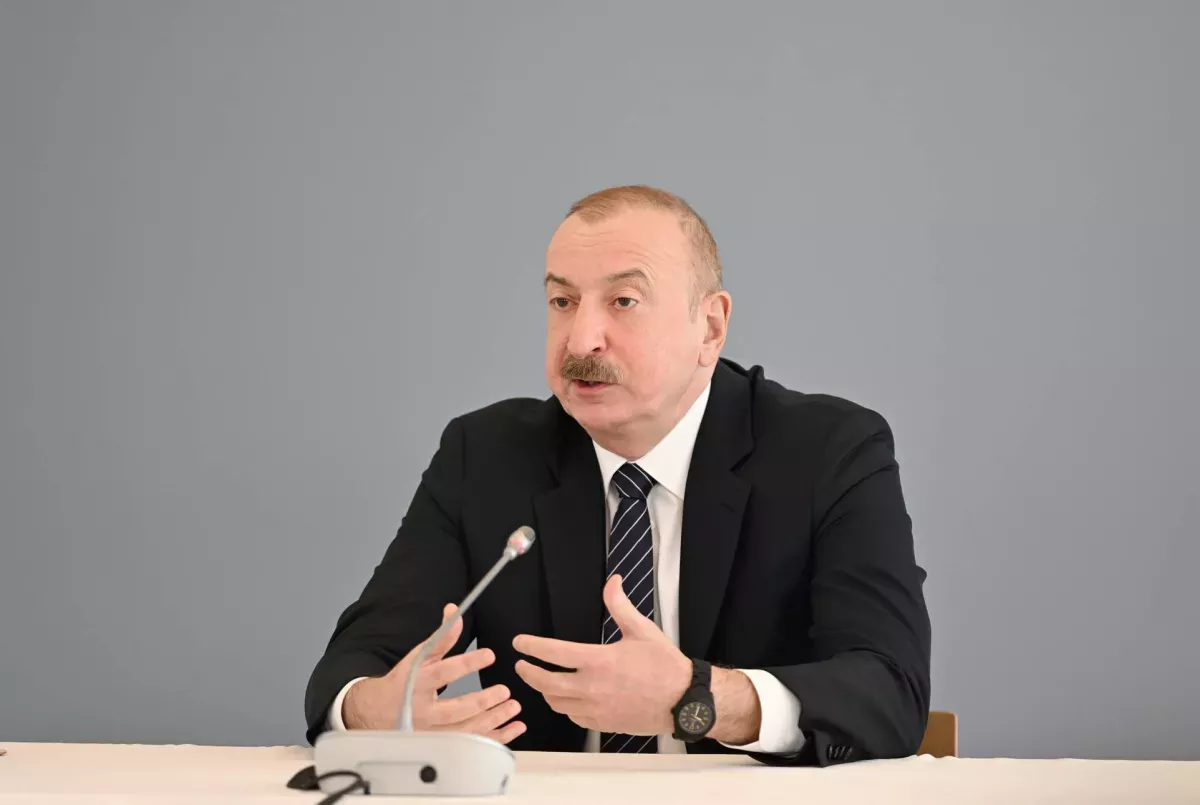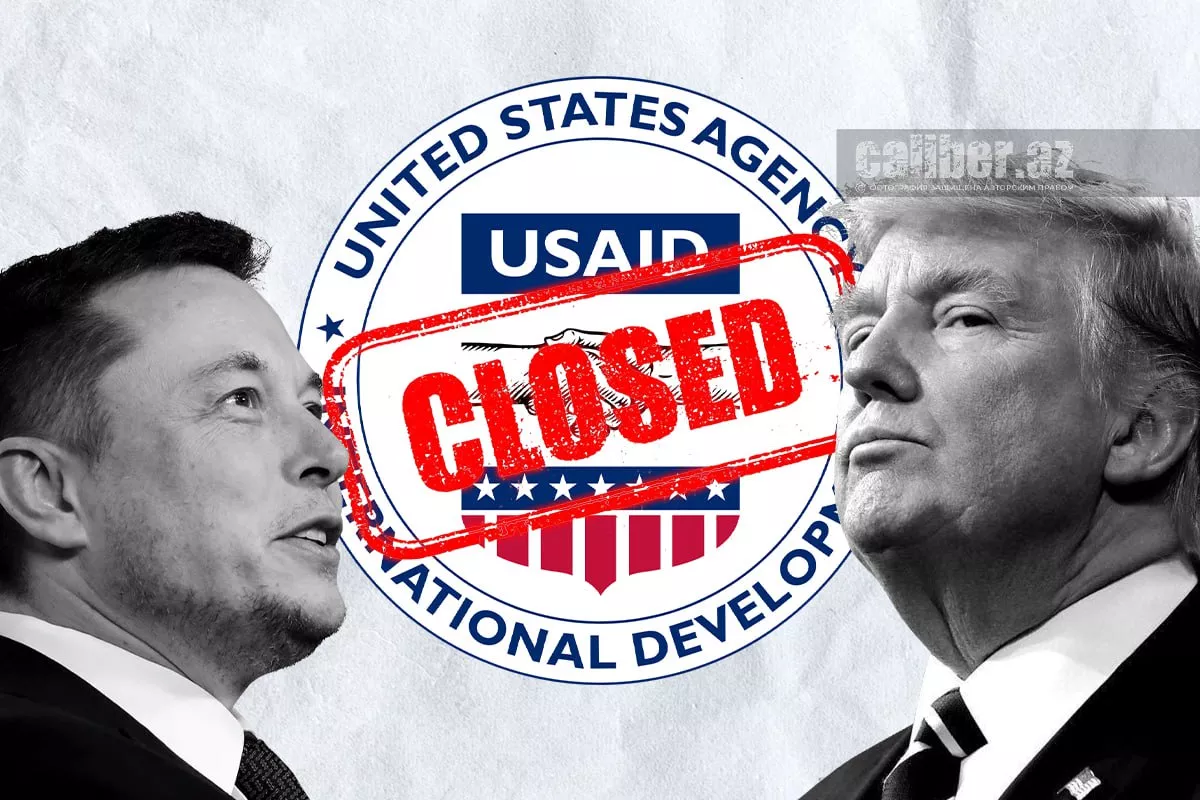US, Middle East, and Azerbaijan: New reality of Trump’s politics Baku and Washington against foreign interference
Let’s agree: regardless of how one feels about U.S. President Donald Trump, it is impossible to deny his charisma. Nor can one ignore the presence of revolutionary ideas in his statements and actions. Yes—revolutionary, whether one chooses to admit it or not. After all, it was the 47th President of the United States who, within just hours of returning to the Oval Office, made a series of fateful decisions not only for the United States, but for the entire world. On the surface, many of these decisions appeared to be purely domestic matters. In reality, however, they reverberated across the globe.
And isn’t it fair to call it a revolutionary step that, during his speech just a day ago at the investment forum in Saudi Arabia, Trump delivered a sort of brief report on his performance as head of the White House? This was clearly no spontaneous gesture. Beginning his address with a statement of his desire to “talk about the bright future of the Middle East,” he asked for permission to share an “abundance of good news .”

Naturally, no one objected to Trump’s request, which allowed him to draw attention to a number of points he deemed relevant. As the American president emphasised, during his four months in office, the new administration has achieved more than most others have in eight years. Against this backdrop, he contrasted the “right track” of the current Washington administration with the “wrong track” taken by the Biden team.
There’s no need to list every point Trump highlighted—ranging from U.S. economic indicators to the country’s foreign policy successes, including the initial outcomes of his visit to the Middle East. Instead, let us focus on several key issues that are currently the subject of intense global discussion.
Trump expressed admiration for the progress Saudi Arabia had made since his last visit to the country in 2018, noting the extraordinary transformation that has taken place under the leadership of King Salman and Crown Prince Mohammed, which, in his words, has turned Riyadh into “a major business, cultural and high-tech capital of the entire world.”
He also made sure to mention Dubai, Abu Dhabi, Doha, and Muscat, highlighting how “a new generation of leaders is transcending the ancient conflicts of tired divisions of the past and forging a future where the Middle East is defined by commerce, not chaos; where it exports technology, not terrorism; and where people of different nations, religions and creeds are building cities together, not bombing each other out of existence.”
It is at this point that Trump strikes a unique chord, declaring—loud and clear to the world—that this “great transformation has not come from Western intervention,” nor from lectures delivered by members of the Western establishment “on how to live and how to govern your own affairs.”
In his emphatic tone, the birth of the modern Middle East was not the work of so-called nation-builders, neoconservatives, or liberal NGOs, but was driven directly by the people of the region themselves—individuals who took action based on their own unique vision and their inner determination to shape their destiny in their own way.

According to Trump, this very aspect was decisive for the prosperity of the regional countries he had named. And the U.S. President did not hesitate to loudly lay bare the underlying reasons behind these developments. In his view, the so-called nation-builders have destroyed far more than they ever built, and the interveners interfered in complex societies they did not even understand.
What’s more, Trump went even further—effectively accusing the “democratic” Biden-Blinken tandem of dictating to Middle Eastern leaders what to do and how to do it, without having the slightest idea of the paths to get there.
And so, Trump struck yet another chord: “Peace, prosperity, and progress” in the region, he argued, “ultimately came not from a radical rejection of your heritage but rather from embracing your national traditions and embracing that same heritage that you love so dearly.” In this way, he concluded, “You achieved a modern miracle the Arabian way, that's a good way.”
Trump strikes boldly—publicly and loudly. By exposing the true reasons behind the Gulf states’ progress, he made it clear that the Democratic Party, embodied by former U.S. leaders, has been sidelined—if not entirely left in the dustbin of history. Trump declared that now “it is within our grasp to reach the future that generations before us could only dream about, a land of peace, safety, harmony, opportunity, innovation and achievement right here in the Middle East.”
He went on to present his vision of the current regional landscape, assessing developments in Iran, Syria, Yemen, Lebanon, Israel, and Gaza. In line with this, he once again brought into focus the expansion of what has come to be known globally—thanks to his own influence—as the historic Abraham Accords, “that we're so proud of.”
To say that Trump’s speech and assessment shocked the world would be an understatement. Yes, the world has grown used to Trump striking with precision and force—cutting, so to speak, to the bone. But his candid view of what has taken place, what is unfolding, and the prospects for the Middle East was something different altogether. He not only openly exposed the full extent of the unprofessionalism and incompetence of the previous Washington administration—something he has pointed out more than once—but also its fundamentally provocative nature toward various regions.
In our view, Trump’s remarks apply almost word for word to the Biden–Blinken approach to the South Caucasus, where they have, quite literally, divided the countries into favourites and undesirables. Let us be objective: does not Trump’s characterisation of U.S. policy under recent “Democratic” leadership—marked by extreme weakness and gross incompetence that undermined the path to peace by destabilising the region—fit perfectly with the policy they are currently pursuing in our region as well?
Didn’t the President of Azerbaijan openly declare just over a month ago that “those who smiled at us” were actually seeking to “stab us in the back,” including by channelling certain financial flows into the country aimed at supporting forces acting against the legitimate government and the interests of the people?
He directly stated that “such notorious institutions like the National Democratic Institute (NDI) were actually plotting a coup d’état here.” The head of state went on to say, “We traced more than 1 million US dollars from a bank account, which was cashed out, and then we found part of that money in rented apartments of opposition activists, together with Molotov cocktails and instructions on how to attack government buildings, how to attack policemen. So, we experienced all of that. The attempts of an Orange Revolution here in 2005, inspired by the U.S. State Department.”
Yes, as President Ilham Aliyev emphasised, “we have full control over the financial system… all so-called grants provided to so-called local NGOs - actually the branches of the opposition - now have to be registered.”
But, as the saying goes, you can’t take words out of the “Democratic Party’s song”: “We all remember, and we never forget.”

Moreover, the Azerbaijani president revealed the reasons behind the Biden-Blinken administration’s attempts to draw dividing lines in the Caucasus. Their main goal was “to isolate Azerbaijan, to discriminate against us, and to spread rumours about Azerbaijan.”
And only after the Biden-Blinken team left office did all these insinuations against Azerbaijan immediately stop, including anti-Azerbaijani articles in the media controlled by the “Democrats.”
“We knew,” President Ilham Aliyev said at the time, “that the source of these articles was the State Department.”
Following this, the head of state emphasised that a similar anti-Azerbaijani stance characterises the activities of USAID. As Ilham Aliyev revealed, preliminary results of the Prosecutor General’s investigation into USAID’s illegal activities demonstrate “the scope of anti-Azerbaijani activity and attempts to undermine our government, clear attempts to intervene and interfere in our internal affairs.”
However, President Ilham Aliyev stressed that with Donald Trump’s return to the White House, we can talk about the end of the anti-Azerbaijani trend in American policy, and that there is a very productive and mutually acceptable action programme between the Trump administration members and the Azerbaijani team.
Considering the Trump administration’s agenda, “we can foresee that this period in our relations will be a very good opportunity to strengthen our partnership.”

Let us agree that what the Azerbaijani president has outlined clearly indicates direct attempts by Trump’s predecessors in the Oval Office to interfere in the internal affairs of Azerbaijan — as well as in Georgia, a country close to us. What Trump said regarding Biden and Blinken’s activities in the Middle East only confirms what President Ilham Aliyev has stated.
The fact remains: the so-called “Democrats” in reality pursued an utterly undemocratic (pardon the pun) policy toward our—and not only our—regions. In doing so, they sought to undermine the official Baku line aimed at maintaining peace, stability, and security throughout the entire region.
As the president summed up during his speech in April of this year, “during the Biden-Blinken administration, relations between the United States and Azerbaijan can be characterised as being in crisis. And the reason for that was not us. We have always wanted to have good relations with the United States, which is a strongest country in the world, but it was because of anti-Azerbaijani policy of the State Department run by Mr. Blinken and many anti-Azerbaijani people in the administration of President Biden.”
However, the enemies’ plan for Azerbaijan did not succeed. And it could not have become a reality. Because the unity that has formed within our society is stronger than any kind of anti-Azerbaijani insinuations.
Returning to Trump’s speech, let us highlight his assertion that as President of the United States, he will always prioritise peace and partnership. As the 47th President of the USA bluntly stated, “In recent years, far too many American presidents have been afflicted with the notion that it's our job to look into the souls of foreign leaders.”
Undoubtedly, Trump’s speech will be analysed for a long time in various circles around the world. From our side, we emphasise that the strength and power of Azerbaijan—which have become a reality—have prevented any attempts at blackmail or external pressure from changing the country’s once-and-for-all chosen policy: securing the independence of the state based on protecting the national interests of the Republic of Azerbaijan. May it remain so, God willing!








